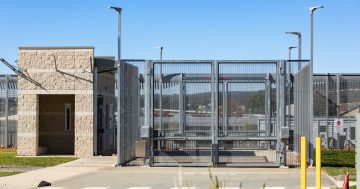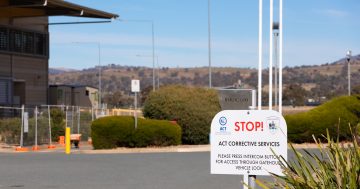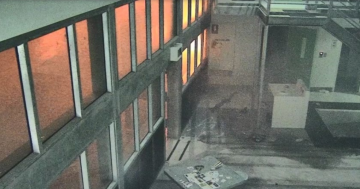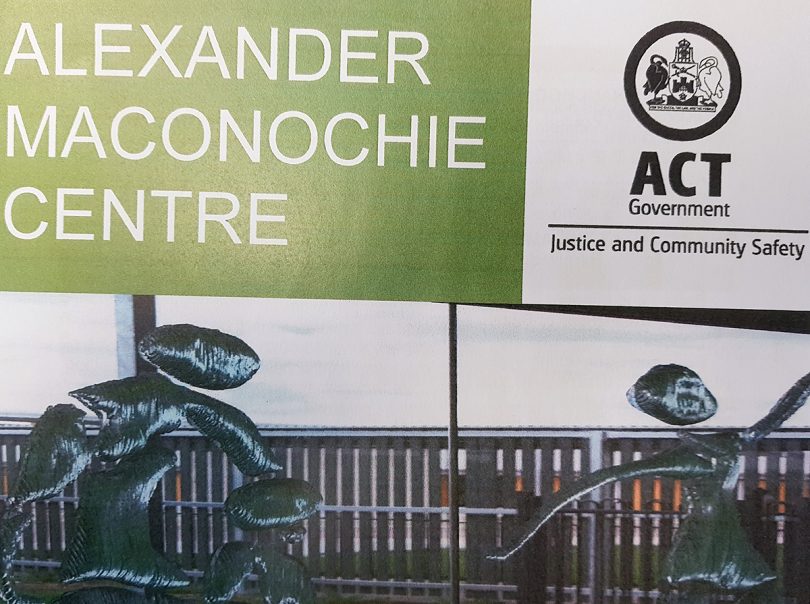
A guard inside the AMC says a lack of discipline inside the prison has crushed the morale of officers. Photo: File.
WARNING: this story contains graphic descriptions of violence.
A prison officer working in the Alexander Maconochie Centre (AMC) has painted a picture of a prison in crisis, with a tinderbox of tensions leading to high staff absenteeism and low morale.
The officer, who asked not to be named, detailed a litany of incidents he claimed had arisen from poor discipline and management systems, including attempted murders and grievous injuries to guards.
He said an officer trying to put out a fire a year and a half ago had his bicep muscle torn from the bone by a prisoner, while another had his foot twisted and tendons torn during the incident. Neither were classified as a serious incident as the officers did not spend more than 24-hours in hospital despite follow up surgeries.
Another had his neck broken on duty after attending to a prisoner who was having a drug-induced psychotic episode, the officer claimed.
Three officers have also sought care in mental hospitals this year due to job-related stress, Region Media was told.
The situation has led to more than 30 per cent of staff calling in sick on a single day.
A Justice and Community Services (JACS) Directorate spokesperson told Region Media that unexpected leave has only been as high as 17 people for one day in 2020. There are around 50 officers on duty on a given day.
“The average daily leave in one month has not exceeded 18 per cent in the past six months. Average daily leave taken has not reached 30 per cent during the same period,” the spokesperson said.
The officer said the problem at AMC had been brewing for a number of years.
“There are a lot of people that are just not able to continually turn up,” the prison officer said. “The sick leave is starting to get quite bad which makes the problem worse because when you do turn up you are generally understaffed and there is not as much backup.
“If it goes too far and we are unable to unlock the yards, the prisoners start getting angry at us.”
Prisoners would then be let out despite a lack of backup for officers to stop anger and tension building within the cells.
The high rate of absenteeism stems from a feeling of powerlessness and frustration among guards who feel they are trying to tackle discipline within the prison with one hand tied behind their backs, he said.
“It seems to be that as time goes by the discipline gets more and more lax, and the prisoners get more and more emboldened. You are just wondering where is it going to stop and how much longer you can push yourself to turn up to work,” the officer said.
Officers who try to remand detainees with disciplinary action “might as well be given crayons to draw some nice pictures over the top of [the application] because it does nothing”, he said.
“They are just given warnings so we feel powerless. The prisoners pick up on it too. They know if they threaten or abuse an officer they will get nothing so more and more of this happens.”
If an inmate was found with a shiv – a makeshift stabbing weapon – disciplinary action used to entail two to four weeks of being confined to their cell, but now that has been reduced to only two or three days, he said.
This can lead to a pseudo-arms race as prisoners try to arm themselves for protection.
“It was only last week we had a prisoner slash the head of another prisoner and again he has pointed the shiv at a couple of officers and threatened them,” he said. “We have had several attempted murders with shivs.”
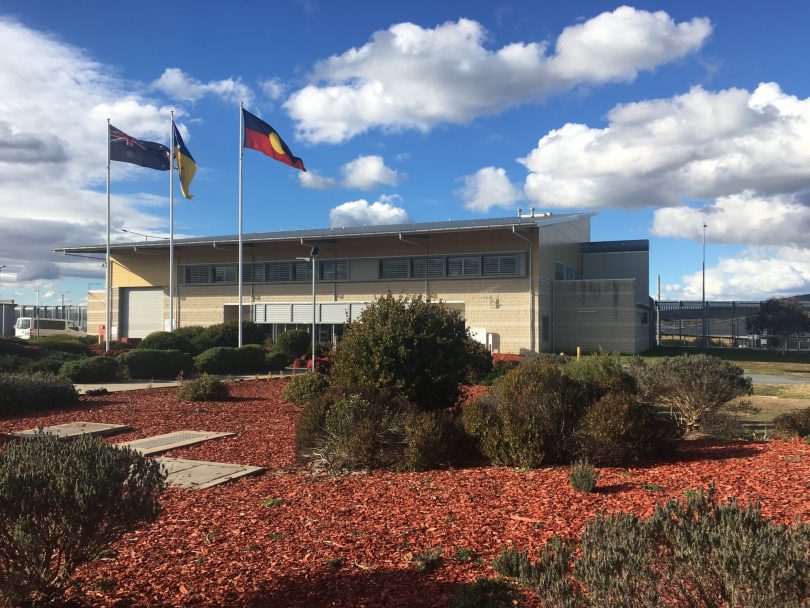
Officers have been attacked by inmates wielding makeshift stabbing weapons. Photo: file.
One prisoner almost had his throat cut while a second attacker tried to slice the main artery in his thigh, and another prisoner was cut from his chin to his ear along his jawbone as an attacker attempted to cut his throat in a separate incident.
Another detainee almost had his bowels cut out and suffered a fist-size hole in his upper leg after being attacked with a shiv.
A JACS spokesperson said that corrections officers are responsible for the management of detainee discipline.
“ACT Corrective Services has reviewed and strengthened the disciplinary process, and this is intended to be implemented by the end of December 2020,” the spokesperson said.
“All disciplinary decisions are made within the parameters and requirements of the Corrections Management Act 2007.”
Drugs are also seen as a catalyst for some of the violence within the centre, with drones being able to fly in large quantities of drugs in a single package.
“In my opinion, a lot of the stuff that happens is drug-related,” the officer said. “Now we have the drones coming in as well and they can take in like $20,000 of drugs in one go.
“A lot of the violence is caused by that because you have people in jail who are earning no money, they get drugs and then they owe the dealers enormous amounts of money so they can be used to bash people these guys want them to bash.”
The issues detailed have been raised by officers and their union, the CPSU, on several occasions but nothing has arisen from the complaints. The union’s ACT Regional Secretary Madeline Northam said it was unacceptable that it took a riot and three code red incidents in a week for the Commissioner to take any notice.
“This is not a regular workplace, our members are dealing with a very dangerous cohort of inmates, and they need all tools available to them,” she said.
“The last few days have highlighted the issues our members have been asking the former Minister and Commissioner to fix for months.”












